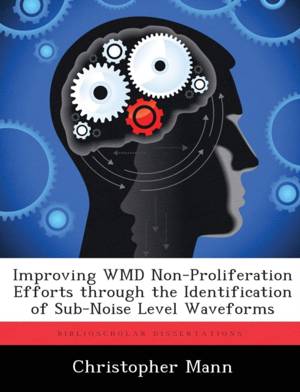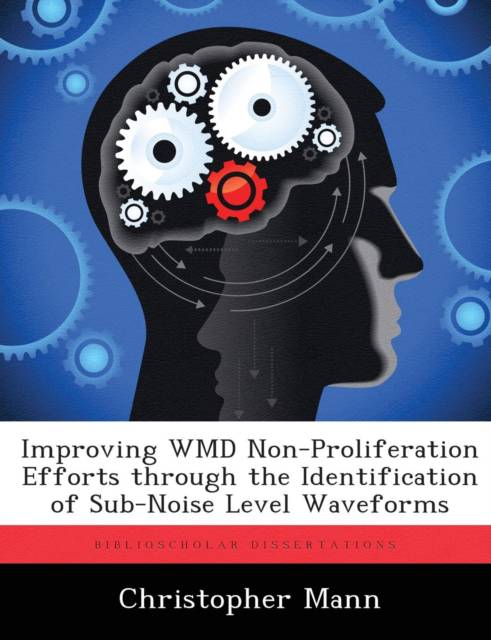
Door een staking bij bpost kan je online bestelling op dit moment iets langer onderweg zijn dan voorzien. Dringend iets nodig? Onze winkels ontvangen jou met open armen!
- Afhalen na 1 uur in een winkel met voorraad
- Gratis thuislevering in België vanaf € 30
- Ruim aanbod met 7 miljoen producten
Door een staking bij bpost kan je online bestelling op dit moment iets langer onderweg zijn dan voorzien. Dringend iets nodig? Onze winkels ontvangen jou met open armen!
- Afhalen na 1 uur in een winkel met voorraad
- Gratis thuislevering in België vanaf € 30
- Ruim aanbod met 7 miljoen producten
Zoeken
Improving WMD Non-Proliferation Efforts through the Identification of Sub-Noise Level Waveforms
Christopher Mann
Paperback | Engels
€ 54,45
+ 108 punten
Omschrijving
The United States and its allies have a substantial security interest in containing the spread of technology, components, and materials that could be used to construct weapons of mass destruction (WMD). Although the scientific knowledge, expertise, and availability of items required to assemble most WMDs are generally beyond the reach of non-state-sponsored terrorist organizations, it is conceivable such organizations may be able to procure amounts of lower-enriched radioactive material (or lesser amounts of highly-enriched materials) adequate for the creation of a radiological dispersion device (i.e., a 'dirty bomb'), a small-yield nuclear weapon, or similar WMD. Unfortunately, advances in materials science and the proliferation of various multi-use technologies have lowered the economic and technological barriers for countries with questionable ties to terrorist networks, thus giving them the potential to purchase, construct, and distribute WMD materials without appropriate accountability. Consequently, reliably verifying the existence of clandestine WMD programs is a vital step toward reducing proliferation. Many processes used to generate WMD materials generate waveforms that, if identified, could assist in the verification of covert WMD efforts. Unfortunately, these waveform signatures must generally be collected at a distance and typically exhibit power spectral densities that make them difficult to distinguish from background noise. However, the application of various mathematical techniques shows promise for recovering and identifying sub-noise level waveform signatures. This paper demonstrates a method to obtain approximately 13 dB improvement in performance over a standard frequency domain analysis while requiring no additional increase in the duration of the collected signal.
Specificaties
Betrokkenen
- Auteur(s):
- Uitgeverij:
Inhoud
- Aantal bladzijden:
- 60
- Taal:
- Engels
Eigenschappen
- Productcode (EAN):
- 9781288313716
- Verschijningsdatum:
- 19/11/2012
- Uitvoering:
- Paperback
- Formaat:
- Trade paperback (VS)
- Afmetingen:
- 189 mm x 246 mm
- Gewicht:
- 127 g

Alleen bij Standaard Boekhandel
+ 108 punten op je klantenkaart van Standaard Boekhandel
Beoordelingen
We publiceren alleen reviews die voldoen aan de voorwaarden voor reviews. Bekijk onze voorwaarden voor reviews.











